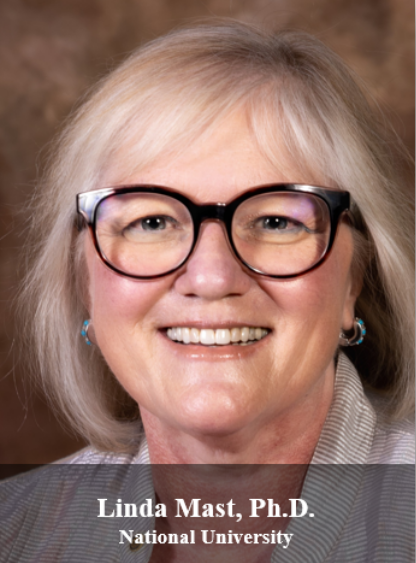

Instructors

Jean Gordon, MSN, MBA, MS, DBA
University of North Carolina, Wilmington
Dr. Jean Gordon is an Assistant Professor at the University of North Carolina, Wilmington, and earned her BS in Nursing from the University of Miami in 1974. Returning to advance her education as an adult, she earned her MS in HRM from Nova Southeastern University in 1997 and completed her Doctorate in Business Administration from Nova Southeastern in 1999. She has earned specializations at the Doctorate level in Human Resources Management, Marketing, and Research Methods, and in early 2010 completed a Master of Science in Nursing from Kaplan University. She has also earned a Master of Business Administration in 2015 with a specialization in Accounting and a Post Masters Certificate as a Family Nurse Practitioner in 2018. She has worked extensively in upper management in Marketing, Accounting, and Human Resources Management in healthcare and business environments. She has extensively published in Human Resources Management, Talent Strategy for Retention, and Knowledge Management. She is active in local and national professional associations of SHRM, ASHHRA, SMA, WHEN, AOM, and AHIMA.

Linda Mast, PhD, FACMPE
National University
Dr. Linda Mast has been a long-time member of AUPHA and a passionate advocate for equity in access to higher education in the health care administration professions. She has served in leadership roles at several universities including Associate Dean for the School of Health Sciences at Northcentral University and the Robert Morris University-Chicago School of Business. Dr. Mast’s significant executive healthcare administration experience including positions with academic medical centers, hospitals, and as Chief Compliance Officer for the University of Chicago gives her the opportunity to incorporate real world examples in her approach to developing curriculum. She has contributed to several new programs and curriculum development in both traditional face to face and online delivery. Innovation in curriculum design for adult learners is one of her passions, and she has served as PI for funded research on self-directed learning and competency- based learning from both a faculty development perspective and the student experience. Dr. Mast is a member of JHAE Editorial Board, former chair of Online Program Directors Forum, and co-author with Stephen Gambescia of the pivotal AUPHA funded white paper in 2013 titled “Assessing Online Education and Accreditation in Healthcare Management” that served as the impetus for advancing conversations to ensure the eligibility of online programs to be accredited. Dr. Mast is a member of AzMGMA Student Membership Committee, a Fellow in the American College of Medical Practice Executives, and a Veteran of the Army Nurse Corps. She serves her community on the Yavapai College Foundation Board and as a member of the Frontier Rotary Club

Eric Richardson, PhD, MBA, MPH, PHR, CHHR, SHRM-CP
University of North Carolina, Wilmington
Dr. Richardson is a tenured Associate Professor and Program Coordinator of the Master of Healthcare Administration (MHA) program at the University of North Carolina, Wilmington. Dr. Richardson is a higher education leader with more than 16 years of experience teaching and developing curricula for traditional and online learning environments - focused on applied learning. In addition, he is an active researcher and presenter of such topics as: innovative online learning best practices, competency-based education, connective and personalized learning environments. Richardson earned a Ph.D. in Human Resource Management in 2011, which has provided unique insights into the development of formal curriculum from a training and development “best practices” perspective. He was named the 2019-20, University of North Carolina, Wilmington – Excellence in eLearning award winner. Accepted as a CAHME Fellow in 2018, Richardson has worked with colleagues on approximately seven site visits. Richardson currently Chairs the national Education and Learning Committee for the American Society for Healthcare Human Resources Administration (ASHHRA) and is a regular contributor to HR Pulse Magazine. In addition, he is the current Forum Chair for the Association of University Programs in Health Administration’s (AUPHA) Distance Learning Faculty forum. He is also active in the local and national professional associations of AOM and SHRM.
Duration
In Person: 7.5 Hours
Virtual: 3 45-minute sessions with asynchronous work in between
This course will next be held virtually on the following dates:
Virtual: 3 45-minute sessions with asynchronous work in between
This course will next be held virtually on the following dates:
- Tuesday, January 9, 2024
- Thursday, January 11, 2024
- Thursday, January 18, 2024
Learning Objectives
- Increase knowledge and skills related to systems design in your program and/or course using evidence-based best practices in continuous improvement.
- Assess current course and curricular design, identifying opportunities for improvement and related challenges.
- Create an evidence-based - course or program - improvement plan utilizing stakeholders, strategies, and tools required for success in continuous improvement.
Course Description
Innovation in teaching and curriculum design is at the heart
of effective education in healthcare administration for graduate and
undergraduate education. This course uses a combination of direct instruction,
individual and group activities, videos, peer collaboration, and feedback. It
introduces the foundations of systems thinking, continuous process improvement,
and evidenced based decision making to guide and inform planning and executing
a program or course’s improvement journey.
Systems thinking in education views the learning experience as an ecosystem of interrelated and interdependent – yet always evolving – participants, parts, and experiences.
Continuous Process Improvement is an effective continuous improvement system with an academic program or individual course that emphasizes the use of evidence-based decision making, learner experiences, stakeholder engagement, and data collection and analysis to guide and inform planning and executing a program or course’s improvement journey.
The concept of Program (PIP) or Course Improvement Planning (CIP) will be used throughout the course as a model, allowing participants to experience PIP/CIP from a faculty and/or administrator perspective. Participants will engage in hands-on activities to create PIP/CIP projects for their undergraduate and/or graduate curriculum incorporating diverse participant backgrounds and experiences.
Systems thinking in education views the learning experience as an ecosystem of interrelated and interdependent – yet always evolving – participants, parts, and experiences.
Continuous Process Improvement is an effective continuous improvement system with an academic program or individual course that emphasizes the use of evidence-based decision making, learner experiences, stakeholder engagement, and data collection and analysis to guide and inform planning and executing a program or course’s improvement journey.
The concept of Program (PIP) or Course Improvement Planning (CIP) will be used throughout the course as a model, allowing participants to experience PIP/CIP from a faculty and/or administrator perspective. Participants will engage in hands-on activities to create PIP/CIP projects for their undergraduate and/or graduate curriculum incorporating diverse participant backgrounds and experiences.
View all Art of Teaching Institute Courses
Here
